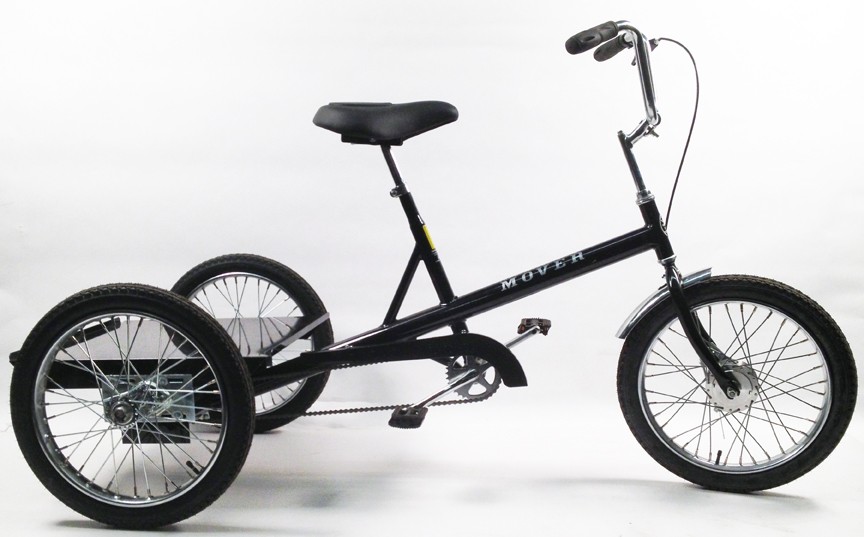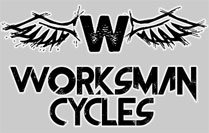Top 5 Reasons to Choose a Worksman Cargo Bike Over a Trailer
 You know the days when the map says “15 minutes” and the street says “not today.” The bike lane narrows, bollards pinch the line, and a trailer turns every corner into a wide swing you do not have room for. The hinge tugs at your back wheel on broken pavement. You keep glancing over your shoulder to check where the trailer is, not where the next door might open. Curb cuts jolt the load. Straps loosen. Time slips away in half minutes you cannot afford.
You know the days when the map says “15 minutes” and the street says “not today.” The bike lane narrows, bollards pinch the line, and a trailer turns every corner into a wide swing you do not have room for. The hinge tugs at your back wheel on broken pavement. You keep glancing over your shoulder to check where the trailer is, not where the next door might open. Curb cuts jolt the load. Straps loosen. Time slips away in half minutes you cannot afford.
That is the decision point. In dense city riding, articulation is the problem. A single, purpose-built Worksman cargo bike keeps the load low and frame-fixed and brakes straight when something goes wrong and fits through tight gaps and stays visible as one clear vehicle. It cuts rider strain and curbside fuss so more of your day goes to moving, not managing. For routes with frequent turns, short gaps, and stop-start traffic, the compact cargo bike is the better tool. Here are the reasons why.
1. Maneuverability that Matches Real Streets
Tight space is the first constraint you feel. Trailers stretch your footprint and require wider lines than the street will actually allow. You hesitate at bollards, swing wide into traffic for turns, and tiptoe over shallow curbs because the hinge behind you wants to arc. With a Worksman Low-Gravity cargo bike, the load sits low and frame-fixed, so the bike tracks as a single unit and follows the line you choose, not the line the trailer demands.
What changes on a Worksman
- You clear pinch points without trailer tail-whip.
- You step up shallow curbs with centered mass.
- You U-turn inside a loading bay without redefining the geometry of the room.
The net effect is confidence. Less over-correction. Fewer slowdowns that add minutes you never planned to spend.
2. Stability and Braking When Things Go Wrong
Once you can actually fit through the street, the next test is how the rig behaves in the event of a mistake. A car noses out, a door pops, a pedestrian steps off the curb. On a trailer setup, that single hitch point can compress and shove the rear of the bike, lifting weight off the back wheel right when you need it most. A Worksman cargo bike carries mass on the chassis, with a low center of gravity that keeps both tires planted and braking forces straight.
Picture the quick stop you’ve made a hundred times.
- Trailer rig: hinge pushes, the bike wobbles, and the trailer can jackknife or wag.
- Worksman cargo bike: one frame, one center of mass, a straight stop you can trust.
Add visibility to the safety equation. Drivers often miss low, dark trailers tucked behind a rider. A single, integrated cargo silhouette presents a unified appearance and is easier to spot in mirrors and side glances.
3. Less Rider Strain, More Route Per Day
Even when nothing dramatic happens, trailers tax you in quiet ways. Every start from a light, every small hill, and every patch of rough pavement multiplies resistance through the hitch. That grind builds fatigue and turns later stops into slow stops. Worksman solves for the daily grind with gearing that lets you spin up loaded without grinding your knees, e-assist options that smooth starts and climbs, and frame-mounted cargo that doesn’t sway and steal watts.
You feel two compounding wins in week one. First, a steadier cadence means consistent arrival times across the whole route, not just the first half. Second, less micromanaging of a hinge frees up mental bandwidth for traffic and customers, rather than focusing on equipment.
Quick self-check for riders
- Are your last two deliveries as fast as your first two?
- Do your hands and lower back feel better on days with more stop signs than green lights?
If the answer is yes on a Worksman, that is the platform doing real work for you.
4. Cargo Systems Designed for Work, Not Bolted On
Work doesn’t end when the wheels stop. With trailers, curbside moments turn fussy. You fiddle with straps, reach around a low hitch, and hope nothing shifted. A Worksman is the system, not an add-on. The Front-Loader and Low-Gravity lines maintain a low weight and frame-fixed design, with options that reflect decades of building for city use.
Highlights that change the day:
- Weather-protected front cabinets that keep goods presentable.
- Steel utility carriers that load straight from the curb without side sag.
- Parking brakes and stout kickstands that keep the bike calm while you load.
Imagine a normal lunch rush drop: lock once, open the cabinet, deliver, close, roll. No chasing a trailer that drifted on a crown in the road, and no re-strapping because a strap walked loose.
5. Fewer Failure Points, Simpler Storage, Lower Friction Costs
Operations live or die on minor hassles. Every extra component is another point of failure, and trailers add wheels, tires, bearings, lights, hitch hardware, and fasteners that suffer on broken pavement. When any one part fails, the whole rig comes to a standstill. A single Worksman platform reduces the list of consumables and the number of things that can take you out of service, and it stores more easily indoors than a long trailer train in a crowded shop or hallway.
Think through the quiet costs:
- Service: one platform to maintain instead of a bike plus a separate rolling chassis.
- Storage: shorter overall length makes indoor parking and overnight security simpler.
- Curb time: quicker lockups and less gear juggling reduce the minutes that disappear between stops.
Lower friction shows up as uptime. Uptime shows up as revenue. It is the same story, told through fewer interruptions.
Make the Switch: Worksman Cargo Bike Over a Trailer
In real city routes, articulation is a problem, and a single Worksman cargo bike outperforms a bike plus trailer in terms of control, safety, rider effort, and uptime. One frame with a low, frame-fixed load tracks your line, stops straight when something goes wrong, keeps you visible as a single vehicle, and conserves energy throughout the day.
Purpose-built cargo systems shorten curb time, while fewer failure points cut maintenance and storage headaches. Share your route, payload, and doorway or elevator limits, and Worksman will specify the right Low-Gravity or Front-Loader build, with e-assist and cargo options where they are beneficial. Schedule a short test ride and feel the difference in one block. If your day lives in tight turns and short gaps, choose the tool that keeps you moving: a Worksman cargo bike.







